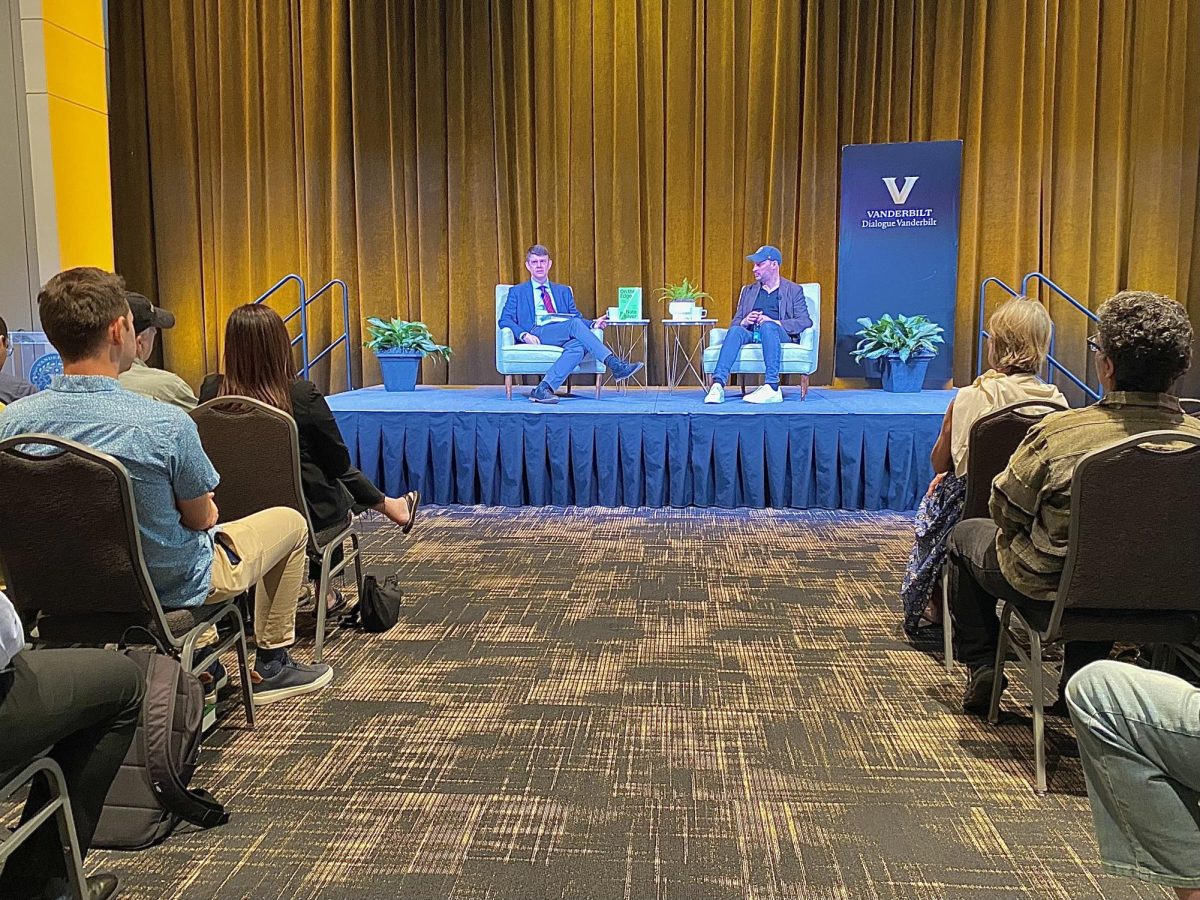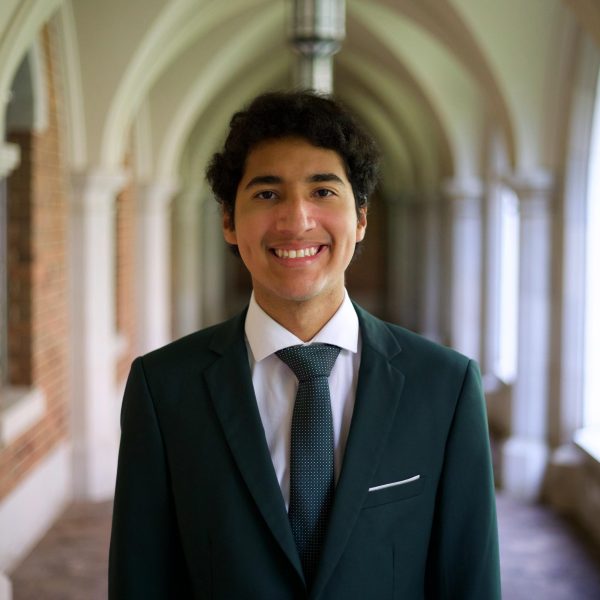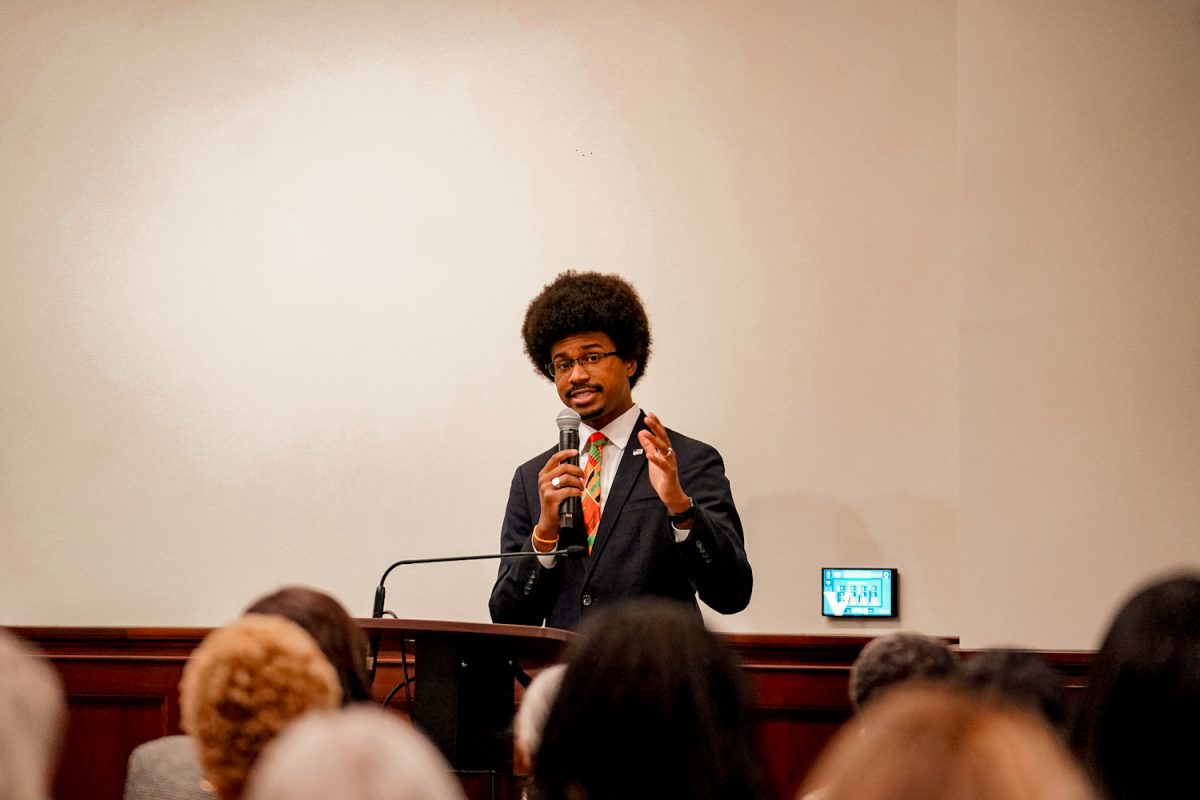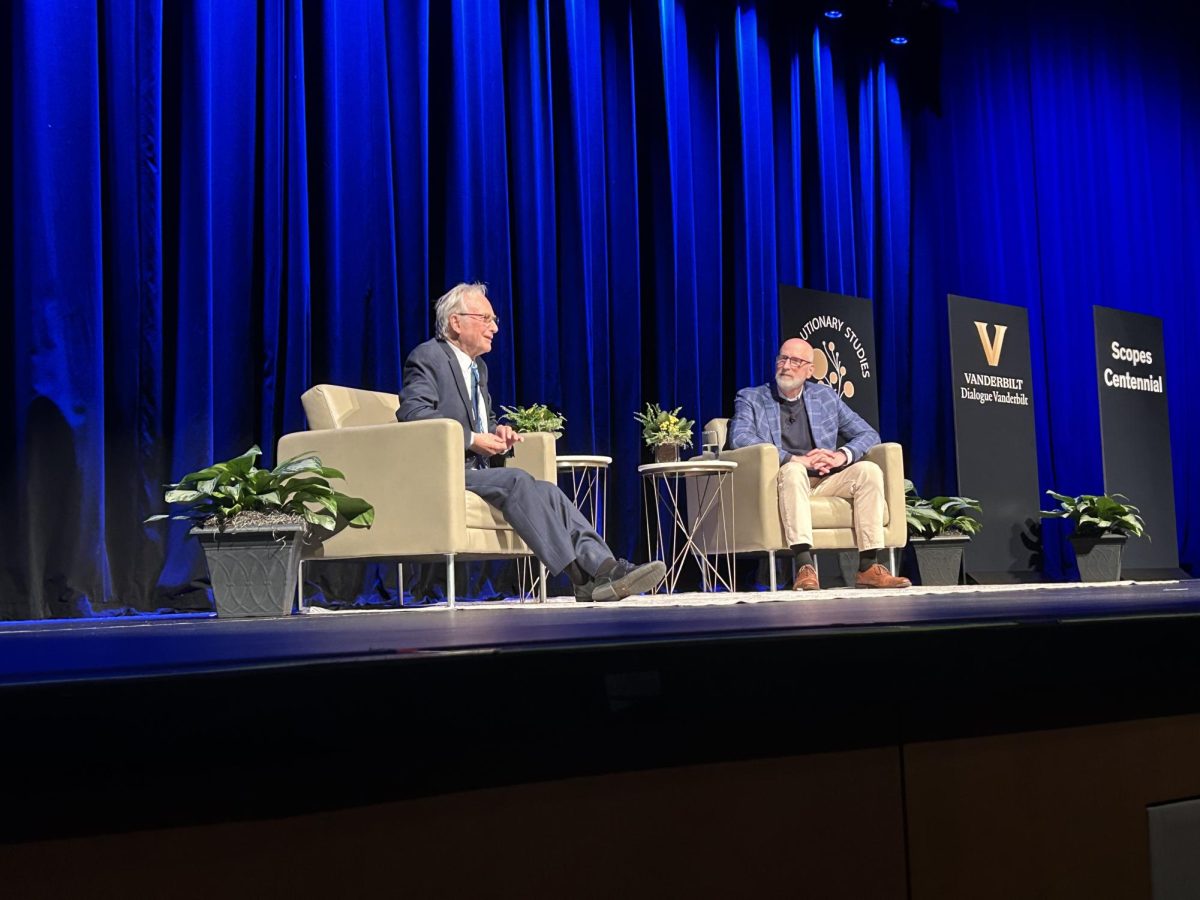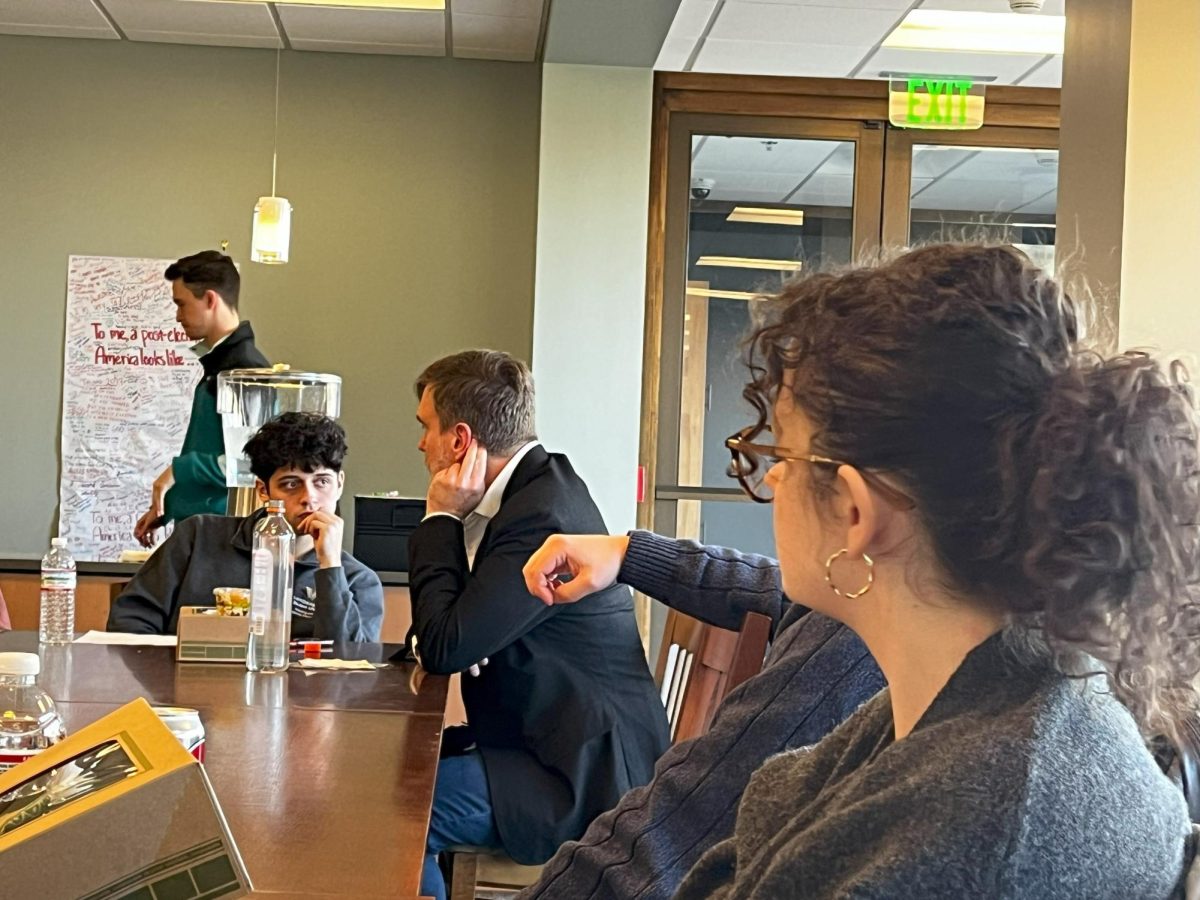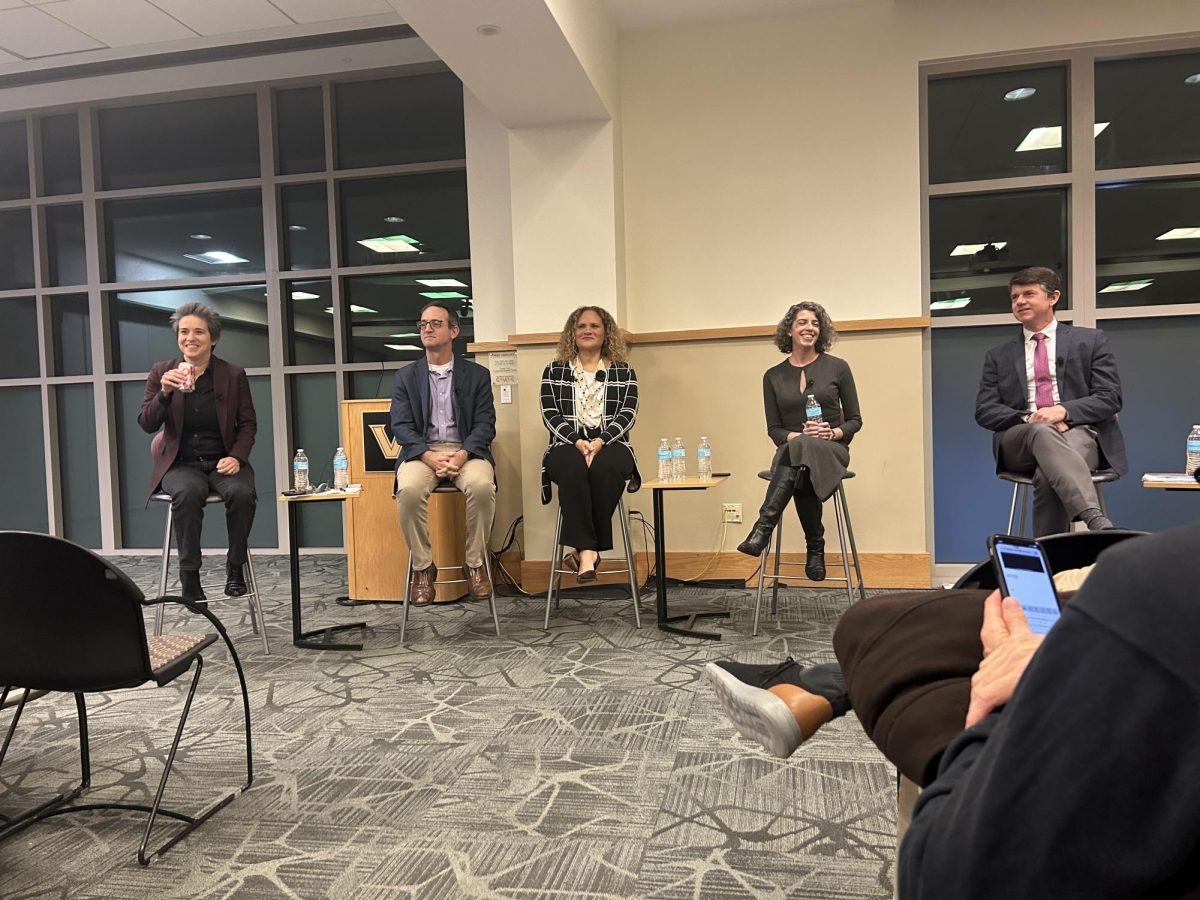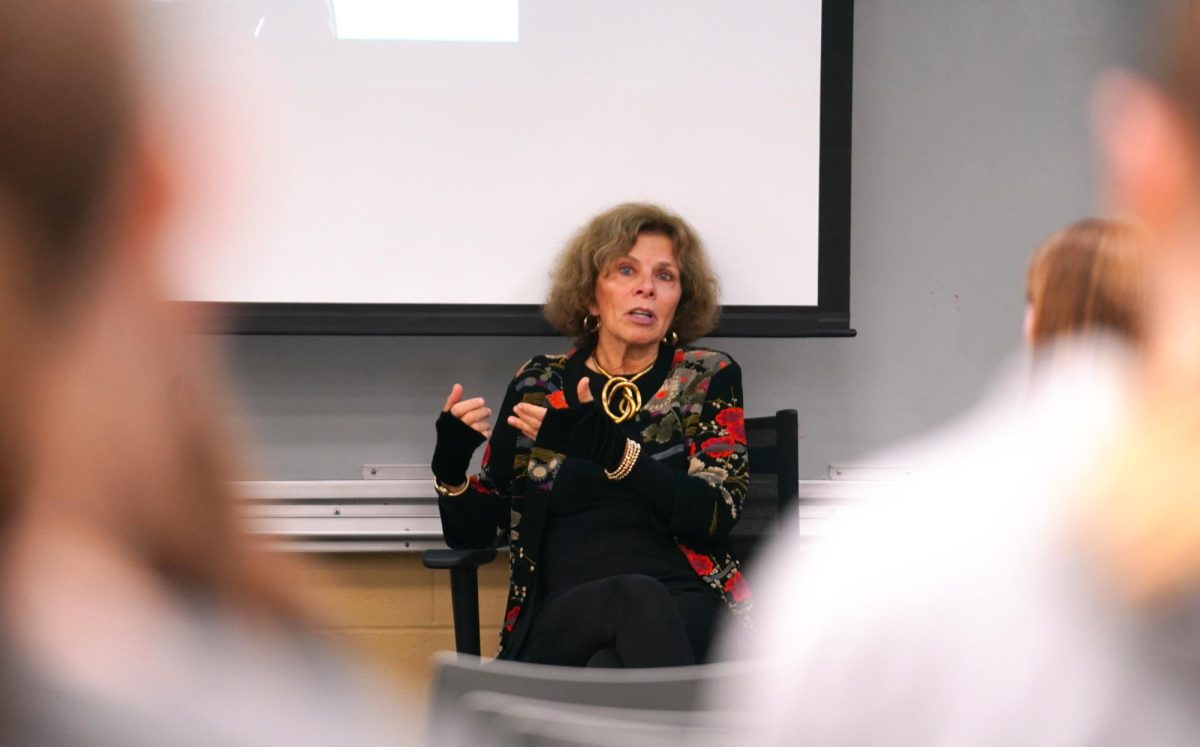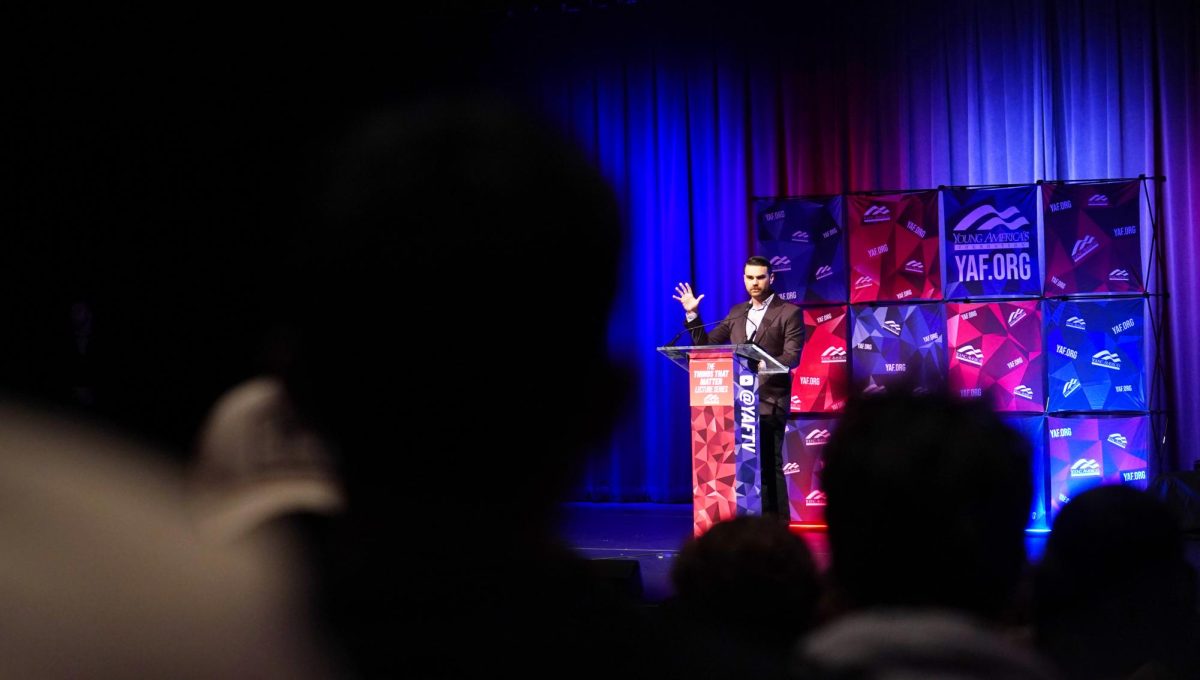Dialogue Vanderbilt and the Center for the Study of Democratic Institutions hosted statistical analyst and writer Nate Silver on October 8 for a discussion about forecasting the upcoming presidential election. Political science department chair John Sides interviewed Silver about his recent book “On the Edge: the Art of Risking Everything,” his advice for gambling and his thoughts on the current election cycle to an audience of about 300 students and community members.
Silver is the founder and former editor-in-chief of election data website FiveThirtyEight. He now publishes work on his Silver Bulletin Substack. Silver is also a New York Times bestselling author for his first book, “The Signal and The Noise: Why So Many Predictions Fail — But Some Don’t.”
Risk-taking
Sides began his conversation with Silver by discussing gambling and general risk-taking as it relates to his new book. Silver warned the audience against gambling and broke down the dangers of doing so.
“Most people should not gamble. We can break it [gambling] down from worst to least bad,” Silver said.
Sides then turned to politics, discussing how people’s attitudes toward risk can manifest in their political opinions. Silver believes the ability to take risks is a privilege because people who have financial security are more likely to take risks that can increase their success.
“People in this room are mostly in positions where they have multiple opportunities to succeed and can afford to take more risk,” Silver said. “[They] can afford to do things like putting more money in [the] stock market or mutual funds when they’re younger instead of older. Things like that have a pretty high payoff over the long term.”
Silver described the relationship between risk and free expression as heightened in recent years. He said free expression itself has been seen as increasingly risky but with significant payoff.
“I think tolerance for free speech has been like a risky position division,” Silver said. “Free speech can have consequences sometimes, but you think that the benefits of having this regime of free speech is one of the pillars of democracy.”
Presidential election
Sides then asked about the idea that many people have accepted the election as a toss-up. Silver explained the mood of the current cycle as better than the prior two elections.
“People have mellowed out a little bit. I think there’s some feeling after the pandemic that we have to get back into our lives,” Silver said.
He added, however, that voters might not be giving enough thought to the potential for a disputed outcome.
“It might be very, very close where we have a disputed outcome across one or more states for days or weeks,” Silver said. “I think people are maybe not mentally prepared enough for that process.”
Silver then offered critiques of both presidential candidates and their campaigns. Slides asked if Harris is too risk-averse and how she could benefit from being risk-acceptant. Silver answered that he mostly blames the Biden campaign staffers that the Harris campaign inherited for their hesitation in doing more press. Silver criticized her choice of Minnesota Governor Tim Walz as a running mate.
“I think picking Tim Walz was a mistake if the alternative was Josh Shapiro,” Silver said. “It’s not a huge difference, but to have one extra point in Pennsylvania makes a difference.”
Silver said he believes Trump is not acting in a way that will increase his chance of winning, but that he has smartly tapped into micro-demographics including disaffected young men. Silver also claimed that the choice of Ohio Senator JD Vance as a running mate was not smart.
“I think Harris has run the better campaign,” Silver said. “I think Trump has, maybe, run a better campaign than he ran the two previous times.”
Sides then asked about the health of democracy in the United States. Silver responded that he believes American democracy will endure the upcoming election, whatever the results may be.
“[People say] this will be the last election if Trump wins, [but] I would bet a lot of money that we would have another election in 2028,” Silver said.
Silver said there are many factors that contribute to the health of democracy and that the chances of American democracy ending based on one election are slim.
Senior Zacarias Negron expressed appreciation for the “simplicity” in the way Silver discussed the election, saying he learned a lot about election mapping.
“I think that Nate [Silver] has a lot of very interesting thoughts on where we find ourselves electorally today,” Negron said. “He uses a very data-driven process to understand the way that elections work while also thinking in a very common-sense way about the data points he receives.”
Negron said he found the analytical outlook of Silver’s opinion on the perseverance of American democracy comforting.
“I think humans can oftentimes be incredibly prideful, thinking that we live in sort of the most exciting or most disastrous moment in all of history,” Negron said. “I study history. Obviously, I’m just an undergrad, but in studying history, humans have had it a lot worse than we have it right now.”

